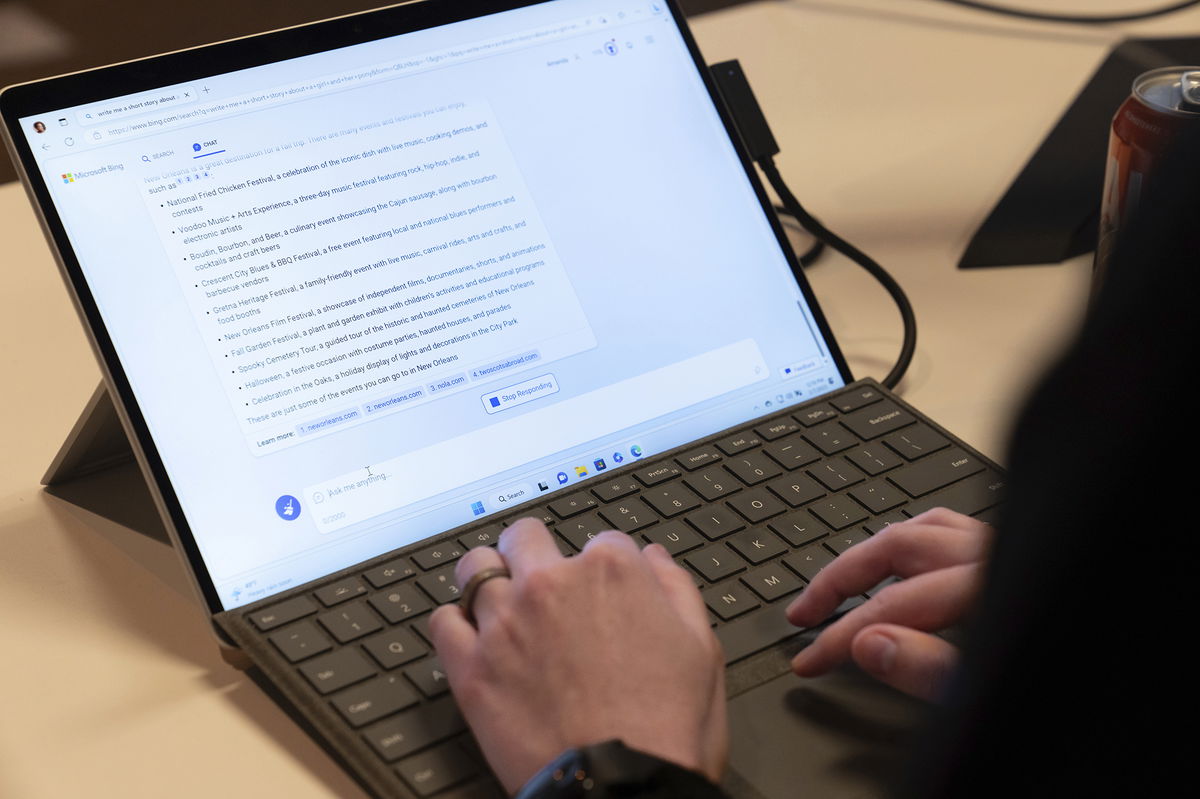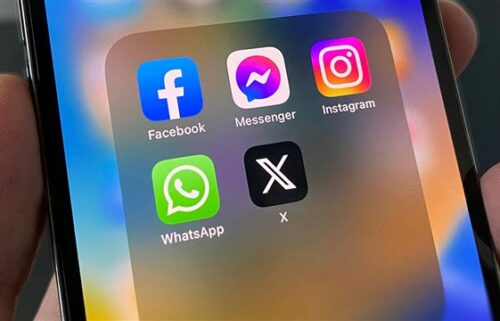The week that tech became exciting again

Microsoft employee Alex Buscher demonstrates a search feature integration of Microsoft Bing search engine and Edge browser with OpenAI on Tuesday in Redmond.
By Samantha Murphy Kelly, CNN Business
Let’s be honest: For much of the past decade, tech events have been pretty boring.
Executives in business casual wear trot up on stage and pretend a few tweaks to the camera and processor make this year’s phone profoundly different than last year’s phone or adding a touchscreen onto yet another product is bleeding edge.
But that changed radically this week. Some of the world’s biggest companies teased significant upgrades to their services, some of which are central to our everyday lives and how we experience the internet. In each case, the changes were powered by new AI technology that allows for more conversational and complex responses.
On Tuesday, Microsoft announced a revamped Bing search engine using the capabilities of ChatGPT, the viral AI tool created by OpenAI, a company in which Microsoft recently invested billions of dollars. Bing will not only provide a list of search results, but will also answer questions, chat with users and generate content in response to user queries. And there are already rumors of another event next month for Microsoft to demo similar features in its Office products, including Word, PowerPoint and Outlook.
On Wednesday, Google held an event to detail how it plans to use similar AI technology to allow its search engine to offer more complex and conversational responses to queries. Chinese tech giants Alibaba and Baidu also said this week that they would be launching their own ChatGPT-style services. And other companies are sure to follow suit soon.
After years of incremental updates to smartphones, the promise of 5G that still hasn’t taken off and social networks copycatting each others’ features until they all the look the same, the flurry of AI-related announcements this week feels like a breath of fresh air.
Yes, there are very real concerns about the potential of this technology to spread biases and inaccurate information, as happened in a Google demo this week. And it’s certainly likely numerous companies will introduce AI chatbots that simply do not need one. But these features are fun, have the potential to give us back hours in the day and, perhaps most importantly, some are here right now to try out.
Need to write a real estate listing or an annual review for an employee? Plug a few keywords into a ChatGPT query bar and your first draft is done in three seconds. Want to come up with a quick meal plan and grocery list based on your dietary sensitivities? Bing, apparently, has you covered.
If the introduction of smartphones defined the 2000s, much of the 2010s in Silicon Valley was defined by the ambitious technologies that didn’t fully arrive: self-driving cars tested on roads but not quite ready for everyday use; virtual reality products that got better and cheaper but still didn’t find mass adoption; and the promise of 5G to power advanced experiences that didn’t quite come to pass, at least not yet.
But technological change, like Ernest Hemingway’s idea of bankruptcy, has a way of coming gradually, then suddenly. The iPhone, for example, was in development for years before Steve Jobs wowed people on stage with it in 2007. Likewise, OpenAi, the company behind ChatGPT, was founded seven years ago and launched an earlier version of its AI system called GPT3 back in 2020.
“ChatGPT exploded onto the market and people’s awareness,” said Bern Elliot, an analyst at Gartner, “but this has been a long time in the making.”
More than that, artificial intelligence systems have for years underpinned many of the functions people may now take for granted, from content recommendations on social media platforms and auto-complete tools in e-mail to voice assistants and facial recognition tools. But when ChatGPT was released publicly in November, it put the power of AI systems on full display for millions in an entertaining and immediately graspable way. ChatGPT simultaneously made it much easier to see how far the technology has progressed in recent years and to imagine the vast potential for the impact it could have across industries.
“When new generations of technologies come along, they’re often not particularly visible because they haven’t matured enough to the point where you can do something with them,” Elliott said. “When they are more mature, you start to see them over time — whether it’s in an industrial setting or behind the scenes — but when it’s directly accessible to people, like with ChatGPT, that’s when there is more public interest, fast.”
Now that ChatGPT has gained traction and prompted larger companies to deploy similar features, there are concerns not just about its accuracy but its impact on real people.
Some people worry it could disrupt industries, potentially putting artists, tutors, coders, writers and journalists out of work. Others are more optimistic, postulating it will allow employees to tackle to-do lists with greater efficiency or focus on higher-level tasks. Either way, it will likely force industries to evolve and change, but that’s not necessarily a bad thing.
“New technologies always come with new risks and we as a society will have to address them, such as implementing acceptable use policies and educating the general public about how to use them properly. Guidelines will be needed,” Elliott said.
Many experts I’ve spoken with in the past few weeks have likened the AI shift to the early days of the calculator and how educators and scientists once feared how it could inhibit our basic knowledge of math. The same fear existed with spell check and grammar tools.
While AI tools are still in their infancy, this week may represent the start of a new way of doing tasks, similar to how the iPhone changed computing and communication in June 2007. But this time, it could be in the form of a Bing browser.
The-CNN-Wire
™ & © 2023 Cable News Network, Inc., a Warner Bros. Discovery Company. All rights reserved.



